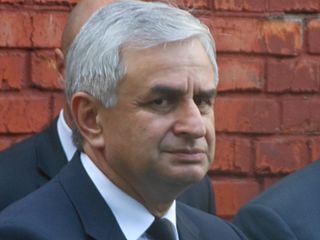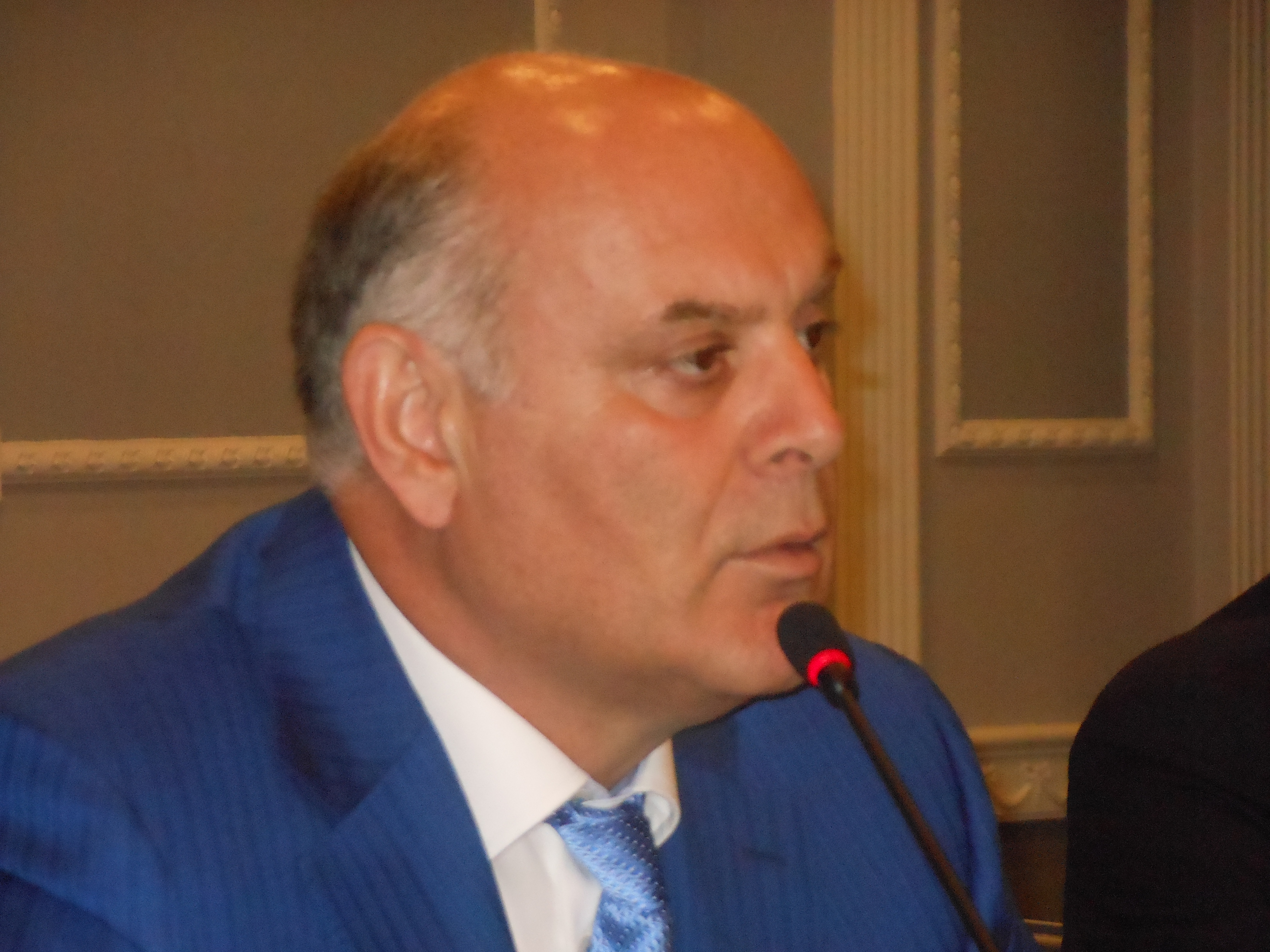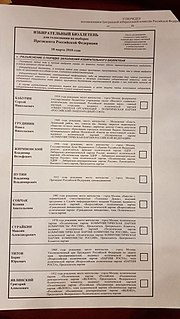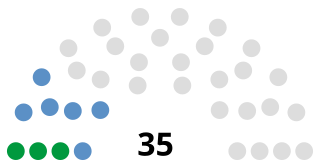
Raul Jumkovich Khajimba is the current President of Abkhazia, having been elected in 2014 after the May Revolution. He was also Chairman of the Forum for the National Unity of Abkhazia from 2010–2015. Khajimba previously held the offices of Vice President (2005–2009), Prime Minister (2003–2004) and Defence Minister (2002–2003). He unsuccessfully ran for President in 2004, 2009 and 2011.
Sergei Shamba is a senior politician from Abkhazia. He is currently a member of the People's Assembly of Abkhazia and Chairman of United Abkhazia. He was Prime Minister of Abkhazia under President Sergei Bagapsh from 13 February 2010 until 27 September 2011. Between 1997 and 2010 he had been Minister for Foreign Affairs under both Bagapsh and his predecessor Vladislav Ardzinba, with only a half-year interruption in 2004. Shamba has twice unsuccessfully participated in Presidential elections, in 2004 and 2011. He has been a staunch proponent for dialogue between Abkhazia and Georgia.

Abkhazia–Nicaragua relations refers to bilateral foreign relations between the Republic of Abkhazia and Nicaragua. Nicaragua recognized Abkhazia and South Ossetia on September 5, 2008.

On 12 December 2009, Abkhazia held its fourth Presidential election since the post of President of the Autonomous Republic of Abkhazia was created in 1994. The election was won by incumbent president Sergei Bagapsh in the first round with 61% of the votes, thus gaining a second term in office. He was inaugurated on 12 February 2010. Bagapsh competed against four opposition candidates: former Vice President and Prime Minister Raul Khajimba, who came second behind Bagapsh in the 2004 Presidential election, and newcomers Beslan Butba, Zaur Ardzinba and Vitali Bganba. Khajimba had stated that he, Ardzinba and Butba would support each other should one of them reach the second round of the election.
Stanislav Lakoba is an academic and politician from Abkhazia. Lakoba was Sergei Bagapsh's Vice-Presidential candidate in the 2004 Presidential election and from 2005 to 2009 and again from 2011 to 2013 he served as Secretary of the Security Council. He is Professor in Archeology, Ethnology and History at the Abkhazian State University.
Beslan Butba is a businessman and a former Prime Minister of Abkhazia. He owns Abkhazia's only private television station Abaza TV and is the chairman of the Party of the Economic Development of Abkhazia. Butba was an unsuccessful candidate in the December 2009 presidential election.
On 12 February 2011, Abkhazia held local elections for the 5th convocations of its local assemblies.

A presidential election was held in the Republic of Abkhazia on 26 August 2011. This was the fifth such election since the post of President of the Republic of Abkhazia was created in 1994. The election was held to elect the successor of president Sergei Bagapsh who died in office on 29 May 2011.
The 5th convocation of the People's Assembly of Abkhazia has been in place since 3 April 2012.
Events in the year 2012 in Abkhazia.
Leonid Dzapshba is a two-time Minister for Internal Affairs of Abkhazia, a former Presidential candidate and the former head of the Football Federation of Abkhazia.
The Abkhazian Revolution took place in 2014, when President Aleksandr Ankvab resigned after hundreds of demonstrators stormed his office. After mass protests in the capital Sukhumi and the occupation of his office on 27 May, Ankvab fled to his hometown of Gudauta and ultimately resigned on 1 June, after previously denouncing the demonstration as an attempted coup d'état.
The Minister for Internal Affairs holds a ministerial position in the government of the Republic of Abkhazia. The post existed in the Soviet period within the Council of Ministers of the Abkhaz Autonomous Soviet Socialist Republic, and since then has been occupied by 10 politicians, of whom three have occupied it twice. The current Minister is Aslan Kobakhia.

The Government of President Raul Khajimba is the current Government of the Republic of Abkhazia.
Shamil Adzynba is the current First Vice Premier of Abkhazia in the Government of President Khajimba, and a two-time acting Prime Minister.
Abkhazia–Nauru relations refers to the bilateral foreign relations between the Republic of Abkhazia and Nauru. Relations were established between the states in 2009, in the aftermath of the 2008 Russo-Georgian War, which saw Abkhazia gain partial international recognition.
Astamur Tania is a former Head of the Presidential Administration of Abkhazia.

Aslan Bzhania is a former Head of the State Security Service, a former Presidential candidate and one of the current leaders of the opposition in Abkhazia.

This article contains the list of candidates associated with the Russian presidential election, 2018.
















